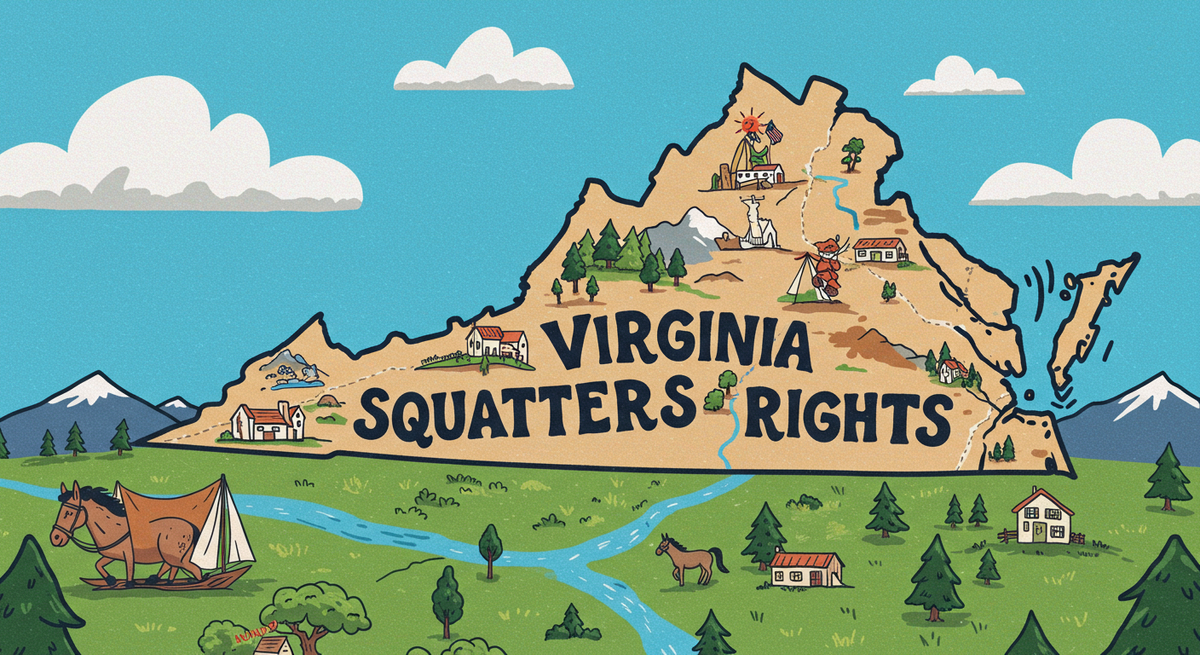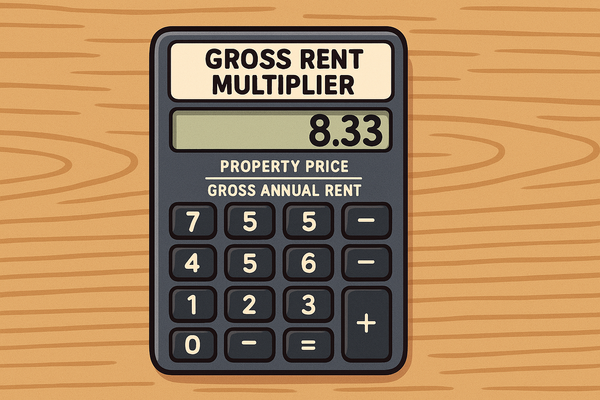Virginia Squatters' Rights: A Comprehensive Guide to Adverse Possession
The cornerstone of Virginia's adverse possession framework is its 15-year statutory period, codified in Virginia Code Ann. § 8.01-236,237.

In the complex landscape of property law, few issues generate as much concern among property owners as squatters' rights and adverse possession claims. Virginia's approach to these matters reflects a careful balancing of property rights protection with legal acknowledgment of long-term possession under specific conditions.
This guide explores the nuanced legal framework that governs squatters and adverse possession in Virginia, offering crucial insights for property owners, real estate professionals, and legal practitioners.
Understanding Squatters Rights in Virginia: The Fundamentals
Virginia law establishes a framework that both protects legal ownership while recognizing the potential for ownership transfer through adverse possession under strictly defined circumstances.
Unlike some states with more lenient approaches, Virginia maintains relatively strong protections for property owners through its extended statutory period and strict requirements for establishing adverse possession claims.
The 15-Year Statutory Period: A Key Protection
The cornerstone of Virginia's adverse possession framework is its 15-year statutory period, codified in Virginia Code Ann. § 8.01-236,237. This extended timeframe provides property owners with a substantial window to discover and address unauthorized occupation before legal ownership rights might be threatened.
Compared to neighboring West Virginia's 10-year requirement, Virginia's longer period reflects a policy preference that somewhat favors existing property owners.
The "OCEAN" Criteria: Legal Requirements for Adverse Possession
For a potential squatter to establish a valid adverse possession claim in Virginia, they must satisfy all elements of what legal experts call the "OCEAN" criteria:
┌─────────────────────────────────────────────────────────────────┐
│ THE "OCEAN" FRAMEWORK │
├───────────────────┬─────────────────────────────────────────────┤
│ OPEN │ Occupation must be visible and apparent │
│ │ to a reasonable property owner │
├───────────────────┼─────────────────────────────────────────────┤
│ CONTINUOUS │ Full 15 consecutive years without │
│ │ significant interruption │
├───────────────────┼─────────────────────────────────────────────┤
│ EXCLUSIVE │ Squatter must possess property for │
│ │ themselves, not sharing control │
├───────────────────┼─────────────────────────────────────────────┤
│ ADVERSE/HOSTILE │ "Simple occupation" doctrine - no │
│ │ permission from legal owner │
├───────────────────┼─────────────────────────────────────────────┤
│ NOTORIOUS │ Community awareness of occupation, │
│ │ neighbors recognize squatter as owner │
└───────────────────┴─────────────────────────────────────────────┘
- Open Possession: The occupation must be obvious and apparent, not hidden or secretive. Courts look for physical evidence such as maintained landscaping, structures, or other improvements that would be readily apparent to neighbors or visitors.
- Continuous Possession: The squatter must maintain possession for the full 15 consecutive years without significant interruption. Brief, temporary absences don't necessarily interrupt continuity, but substantial gaps will reset the statutory clock.
- Exclusive Possession: The unauthorized occupant must possess the property for themselves, not sharing control with the true owner or other parties. This means exercising the type of control that an owner would typically maintain.
- Adverse/Hostile Claim: Virginia follows the "simple occupation" doctrine, meaning the squatter doesn't need to know they're on someone else's property or have malicious intent. Possession without the owner's permission is sufficient to satisfy this requirement.
- Notorious Possession: The occupation must be "so obvious that the true owner may be presumed to know about it." This standard focuses on the community's awareness of the occupation, considering whether neighbors would recognize the squatter as the apparent owner.
Recent Legal Developments in Virginia Adverse Possession Law
The legal landscape surrounding adverse possession in Virginia has evolved through recent court decisions that property owners should note:
Mistaken Belief Doesn't Negate Claims
A significant 2024 Court of Appeals ruling (Anne P. Everett v. George Lee Parson, et al.) clarified that possession under a mistaken belief about property boundaries does not invalidate an adverse possession claim. This interpretation differentiates Virginia from states requiring intentional trespass for adverse possession claims.
Property Sales Don't Reset the Clock
In another landmark 2024 decision (Ho v. Rahman), the Court of Appeals determined that selling a property does not reset the 15-year statutory period for adverse possession claims already in progress.
This means new property owners inherit ongoing adverse possession situations with whatever time has already accumulated—a crucial consideration for real estate transactions in Virginia.
The Eviction Process: Removing Unauthorized Occupants
When dealing with squatters, Virginia property owners must follow specific legal procedures for removal:
Legal Process Timeline
The Virginia eviction process, formally called an "Unlawful Detainer," typically follows this structured procedure:
- Issue a written 5-day notice to vacate
- File an unlawful detainer lawsuit if the squatter refuses to leave
- Attend the court hearing
- Obtain a judgment for possession
- Request a Writ of Eviction from the court
- Allow the sheriff to execute the eviction
From start to finish, this process typically takes between 46-73 days—a reflection of Virginia's procedural protections for occupants, even unauthorized ones.
| Process Stage | Typical Timeframe |
|---|---|
| Court Hearing and Judgment | 21-30 days |
| Issuance of Writ of Eviction | 10 days |
| Delivery/Posting of Writ of Eviction | 15-30 days |
| Return of Rental Unit | 72 hours |
| Total Timeline | 46-73 days |
Prohibited Self-Help Methods
Virginia law strictly prohibits "self-help" eviction methods. Property owners cannot:
- Change locks
- Remove doors or windows
- Shut off utilities
- Remove the occupant's belongings
- Use threats or force to remove occupants
Violating these prohibitions can result in the squatter successfully suing the property owner for illegal eviction, potentially resulting in monetary damages and other legal penalties.
The Fairfax Phenomenon: When Squatters Rights Captured National Attention
A remarkable real estate story from Northern Virginia illustrates the complex human dimensions of squatter situations. In 2022, a five-bedroom house in Fairfax, Virginia made national headlines when it sold for $805,000 despite an extraordinary condition: it came with a person living in the basement who refused to leave.
The Zillow listing contained this remarkable disclosure: "Home sold AS IS ONLY with acknowledgement that home will convey with a person(s) living in lower level with no lease in place." Additionally, potential buyers were informed there would be "NO ACCESS to see the lower level of the home."
This case highlighted how real estate transactions can proceed even with unauthorized occupants in place—the property received five all-cash offers and went under contract just two days after being listed. The situation involved competing narratives about the basement occupant:
- The real estate agent characterized it as elder exploitation, claiming the woman had convinced the senior owner to let her stay temporarily and then refused to leave
- The basement occupant, who identified herself as Nelly, claimed she had formed a family-like relationship with the homeowner after initially working as his house cleaner
This case demonstrated the complex intersection of property rights, personal relationships, and legal protections in Virginia's property law landscape.
Prevention Strategies: Protecting Your Property Rights
Property owners in Virginia should implement these evidence-backed prevention strategies:
- Regular property inspections: Document visits with dated photographs and videos to demonstrate active management
- Proper boundary maintenance: Clear marking of property lines with fencing and "No Trespassing" signs establishes clear ownership intent
- Neighbor engagement: Cultivate relationships with neighbors who can alert you to unauthorized occupants
- Prompt legal action: Address trespassers immediately before they can establish long-term presence
- Property tax compliance: Maintaining current property tax payments creates an official record of ownership
- Periodic documentation: Regular photographic evidence showing the property's condition helps prove no unauthorized improvements have been made
CHART: Decision Tree for Property Owners
┌───────────────────────────┐
│ DISCOVERED UNAUTHORIZED │
│ OCCUPANT? │
└─────────────┬─────────────┘
│
▼
┌───────────────────────────┐ NO ┌───────────────────────────┐
│ OCCUPATION LESS THAN ├────────────► IMMEDIATE DOCUMENTED │
│ 15 YEARS? │ │ LEGAL ACTION REQUIRED │
└─────────────┬─────────────┘ └───────────────────────────┘
│ YES
▼
┌───────────────────────────┐
│ DOCUMENTED EVIDENCE │
│ OF OWNERSHIP? │
└─────────────┬─────────────┘
│
▼
┌───────────────────────────┐ NO ┌───────────────────────────┐
│ HAS PROPER NOTICE ├────────────► ISSUE WRITTEN 5-DAY │
│ BEEN GIVEN? │ │ NOTICE TO VACATE │
└─────────────┬─────────────┘ └───────────┬───────────────┘
│ YES │
│ │
▼ ▼
┌───────────────────────────┐ NO ┌───────────────────────────┐
│ HAVE OCCUPANTS LEFT ├────────────► FILE UNLAWFUL DETAINER │
│ THE PROPERTY? │ │ LAWSUIT │
└─────────────┬─────────────┘ └───────────┬───────────────┘
│ YES │
│ │
▼ ▼
┌───────────────────────────┐ ┌───────────────────────────┐
│ IMPLEMENT PREVENTATIVE │ │ ATTEND COURT HEARING │
│ MEASURES AND │ │ │
│ REGULAR MONITORING │ └───────────┬───────────────┘
└───────────────────────────┘ │
│
▼
┌───────────────────────────┐
│ OBTAIN JUDGMENT FOR │
│ POSSESSION │
└───────────┬───────────────┘
│
▼
┌───────────────────────────┐
│ REQUEST WRIT OF │
│ EVICTION │
└───────────┬───────────────┘
│
▼
┌───────────────────────────┐
│ SHERIFF EXECUTES │
│ EVICTION │
└───────────────────────────┘
This decision tree provides Virginia property owners with a clear pathway for addressing unauthorized occupants, ensuring compliance with state law while protecting property rights.
Geographical Considerations in Virginia
Virginia's diverse geography creates varying challenges for property monitoring:
Urban vs. Rural Differences
Urban property owners in areas like Virginia Beach or Northern Virginia typically benefit from greater visibility and neighbor oversight, making long-term adverse possession less likely. Conversely, rural property owners face greater challenges in regular monitoring, potentially allowing squatters to establish longer periods of undetected occupation.
Vacation Property Risks
Coastal properties and vacation homes in Virginia may face additional risks from seasonal occupants, as these properties often go unchecked for extended periods, creating higher adverse possession risk.
Comparing Virginia to Neighboring States
Virginia's 15-year adverse possession period positions it in the middle range for the region compared to North Carolina (20 years), Maryland (15 years), and West Virginia (10 years):
| State | Statutory Period | Special Conditions |
|---|---|---|
| Virginia | 15 years | Sale of property does not reset clock |
| West Virginia | 10 years | Standard requirements apply |
| Maryland | 15 years | Similar to Virginia's approach |
| North Carolina | 20 years | 7 years with color of title |
A distinguishing feature of Virginia's adverse possession law is the court's interpretation that a sale of the property does not reset the 15-year statutory period for adverse possession claims already in progress. This differs from some states where a property sale can interrupt or reset the adverse possession timeline.
Conclusion: Vigilance as the Key to Protection
Virginia's 15-year statutory period provides property owners significant protection against casual squatters, but the state's interpretations of the "OCEAN" criteria and recent court rulings create nuanced legal challenges. The ruling that property sales don't reset the adverse possession clock particularly highlights the importance of thorough property inspection and boundary verification during real estate transactions.
Property owners must recognize that legal ownership comes with responsibilities for active property management. By understanding these state-specific regulations and implementing preventative measures, Virginia property owners can significantly reduce their risk of losing property rights through adverse possession.
For those facing potential squatter situations, consulting with a qualified attorney who specializes in Virginia property law is highly recommended, as navigating these complex legal waters requires expert legal advice tailored to the specific circumstances of each case.
Disclaimer: This article is provided for informational purposes only and does not constitute legal advice. Property owners dealing with potential adverse possession claims should consult with a qualified attorney for guidance specific to their situation.





